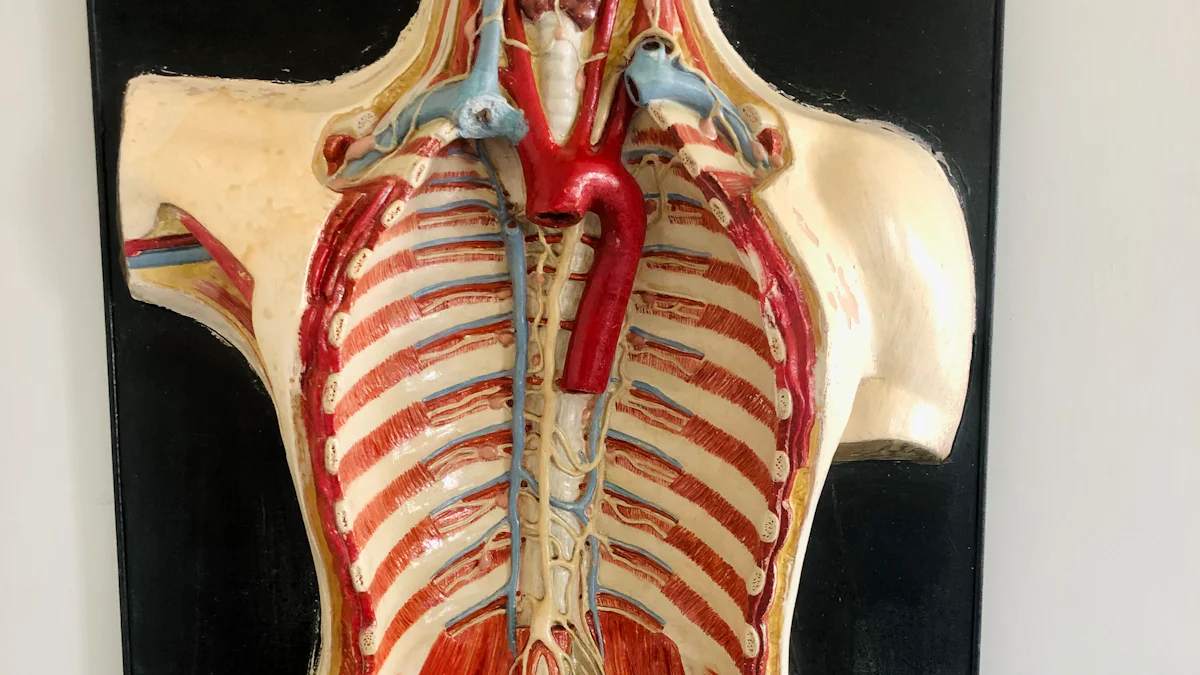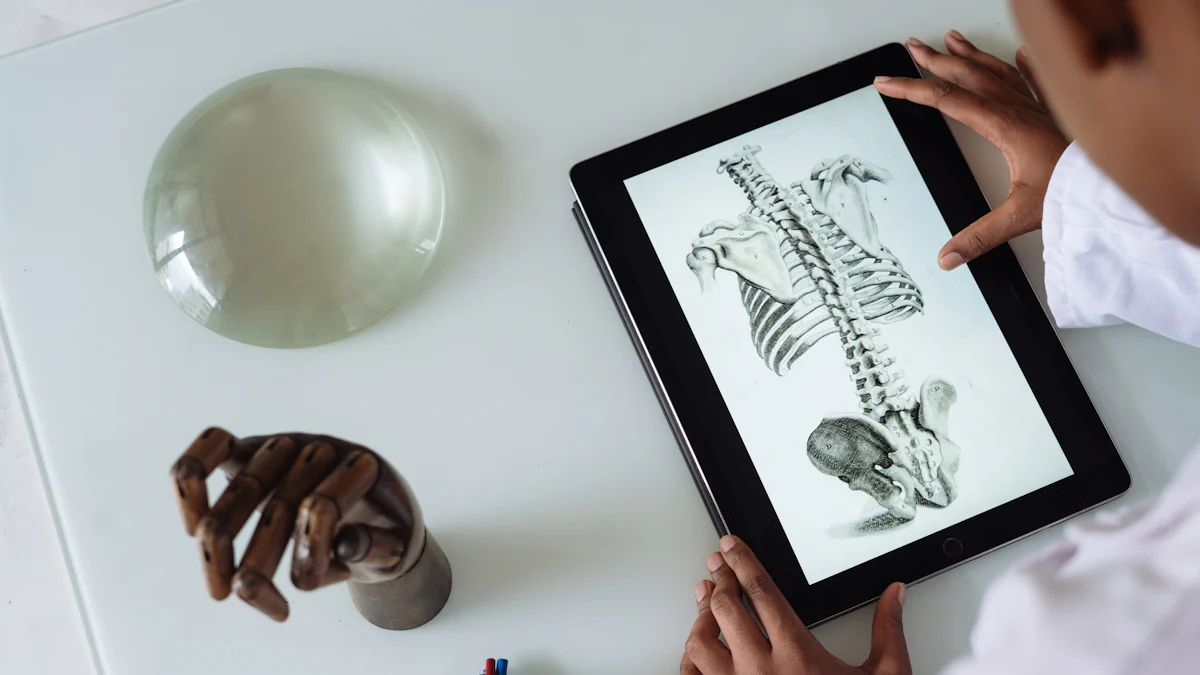Anatomicum: Welcome to the Museum

Step into Anatomicum, where the marvels of anatomy are ready to be explored from the comfort of your own home. This virtual museum offers a distinctive journey through the human body. Visitors can delve into intricate details and rare specimens without ever leaving their seats. Anatomicum provides an engaging experience that connects learners worldwide. The platform utilizes digitized artifacts and 3D modeling to bring anatomy to life. Discover a world where education meets innovation, making learning both accessible and exciting.
Historical Context of Theatrum Anatomicum
Origins of Anatomical Theatres
The concept of anatomical theatres emerged in the 16th century. These structures revolutionized the study of anatomy. The University of Padua built the first anatomical theatre in 1594. This theatre served as a model for others. The Anatomical Theatre of Padua still stands today. The design resembled a traditional theatre. This layout allowed students to observe dissections closely. Theatres like these became essential for medical education.
Early Developments in Anatomy

Anatomical theatres played a crucial role in early anatomy studies. Scholars gathered to witness dissections. These events provided firsthand knowledge of the human body. Early anatomists documented their findings meticulously. Theatres facilitated the sharing of anatomical discoveries. This environment nurtured a deeper understanding of human biology.
Role in Medical Education
Anatomical theatres transformed medical education. Universities incorporated them into their curricula. Students learned anatomy through direct observation. Professors demonstrated surgical techniques. This hands-on approach enriched the learning experience. Theatres bridged the gap between theory and practice. Medical students gained valuable insights into human anatomy.
Significance in History
Anatomical theatres hold significant historical importance. These institutions influenced modern anatomy. Theatres laid the groundwork for contemporary medical practices. Their impact extends beyond the medical field. Theatres also shaped cultural perceptions of the human body.
Influence on Modern Anatomy
Theatres contributed to advancements in modern anatomy. They encouraged detailed anatomical studies. Researchers built upon earlier discoveries. Anatomical knowledge expanded rapidly. Theatres fostered a culture of scientific inquiry. This legacy continues to influence today's medical research.
Cultural Impact
Anatomical theatres left a lasting cultural impact. They changed how society viewed the human body. Theatres demystified anatomy for the public. People gained a greater appreciation for medical science. Theatres also inspired artistic representations of anatomy. This cultural shift remains evident in modern times.
Exploring the Book 'Anatomicum'
Overview of the Book
Anatomicum offers a captivating journey through the human body. The book serves as a virtual museum, providing readers with a comprehensive introduction to anatomy. Each page unveils the intricate details of human anatomy, from bones to blood vessels. Anatomicum stands out with its detailed illustrations and engaging text.
Structure and Content
The structure of Anatomicum guides readers through various systems of the human body. The book includes a table of contents and an index for easy navigation. Each section focuses on different anatomical aspects, such as the skeletal and muscular systems. This organization allows readers to explore anatomy systematically. Anatomicum also features a Junior Guide version, making it accessible to younger audiences.
Visual and Intellectual Appeal
The visual appeal of Anatomicum captivates readers with stunning artwork. The illustrator, a renowned tattoo artist, brings anatomy to life with vivid imagery. These illustrations enhance the understanding of complex anatomical concepts. The intellectual appeal lies in the expert text by a university lecturer in anatomy. This combination of art and science creates a masterpiece that educates and inspires.
Contributors and Expertise
The creation of Anatomicum involved collaboration between experts in anatomy and art. The authors and illustrators bring unique perspectives to the book. Their expertise ensures accurate and engaging content for readers.
Authors and Illustrators
Dr. Jennifer Z. Paxton, a university lecturer, authored the text for Anatomicum. Her knowledge provides a solid foundation for the book's content. Katy Wiedemann, the illustrator, adds a creative touch with her artistic skills. This partnership results in a beautifully crafted book that appeals to a wide audience.
Their Contributions to Anatomy
The contributions of the authors and illustrators extend beyond the pages of Anatomicum. Their work bridges the gap between scientific knowledge and artistic expression. Anatomicum serves as a valuable resource for anyone interested in anatomy. The book encourages readers to appreciate the complexity and beauty of the human body.
Anatomicum as a Modern Educational Platform

Importance of Anatomical Education
Anatomicum serves as a vital tool in anatomical education today. The study of anatomy remains crucial for medical students and professionals. Understanding the human body aids in diagnosing and treating diseases. Anatomicum provides an innovative approach to learning anatomy. This platform combines traditional methods with modern technology.
Relevance in Today's World
Anatomy education holds significant relevance in today's world. Medical advancements rely on a deep understanding of human anatomy. Anatomicum offers a comprehensive exploration of body systems. This resource supports the ongoing education of healthcare professionals. Anatomicum enhances the knowledge required for effective medical practice.
Bridging Past and Present
Anatomicum bridges the gap between historical and modern anatomy. The platform incorporates elements of traditional anatomical theatres. Anatomicum also integrates cutting-edge digital technology. This combination enriches the learning experience for students. Anatomicum connects past discoveries with contemporary insights.
Anatomicum's Role in Learning
Anatomicum plays a pivotal role in the learning process. The platform provides access to detailed anatomical information. Students can explore complex structures through interactive features. Anatomicum encourages active engagement with educational content.
Accessibility and Engagement
Anatomicum ensures accessibility for learners worldwide. The platform offers a virtual museum experience from any location. Users can navigate through detailed anatomical illustrations. Anatomicum engages students with visually appealing content. This approach fosters a deeper understanding of anatomy.
Future of Virtual Museums
Anatomicum represents the future of virtual museums. The platform sets a standard for digital anatomical education. Anatomicum combines artistry with scientific accuracy. This integration creates an immersive learning environment. Virtual museums like Anatomicum will continue to evolve. These resources will shape the future of anatomical education.
Anatomicum offers a fascinating journey through the world of anatomy. The exploration of Anatomicum provides a deeper understanding of the human body. Readers gain insights into the intricate structures that make up our anatomy. Anatomicum emphasizes the ongoing importance of anatomical education. The book serves as a valuable resource for both young people and adults. Anatomicum encourages further exploration of anatomy. The stunning illustrations and detailed descriptions captivate readers. Anatomicum remains an essential tool for anyone interested in learning about anatomy. The book inspires curiosity and appreciation for the complexity of the human body.
See Also
Anatomy: The Beautiful and Disturbing Art of Human Body
USA History: An Illustrated Reference Book
Tutankhamun: A Century of Uncovering Secrets

